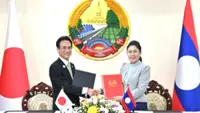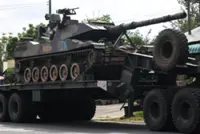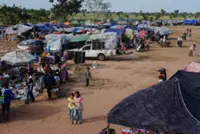PUTRAJAYA, 22 Julai -- Menteri Luar Datuk Seri Mohamad Hasan ketika sidang media selepas membuat perjumpaan bersama Persatuan Ibu Bapa Pelajar Bangladesh Malaysia di Wisma Putra, hari ini. --fotoBERNAMA (2024) HAK CIPTA TERPELIHARA
VIENTIANE: Malaysia, Laos, and Indonesia continue to pursue a ‘troika mechanism’ in efforts to restore democracy in Myanmar, a troubled Asean member state.
Malaysian Foreign Minister Datuk Seri Mohamad Hasan (pic) mentioned that informal consultation meetings with the Asean Chair have been held in the past, present, and will continue in the future to discuss the implementation of the Five-Point Consensus, and the troika mechanism has been considered to help address issues in Myanmar.





